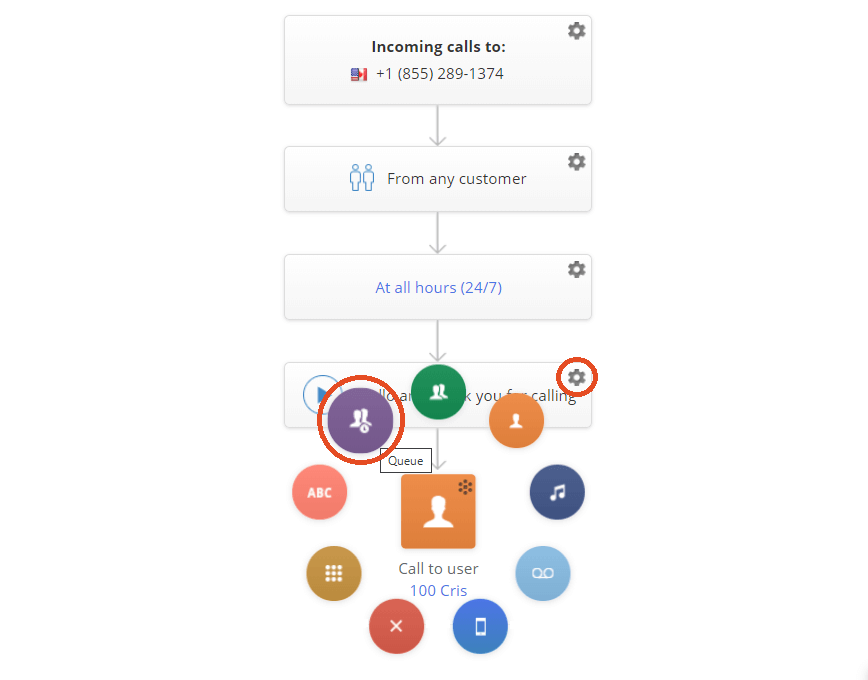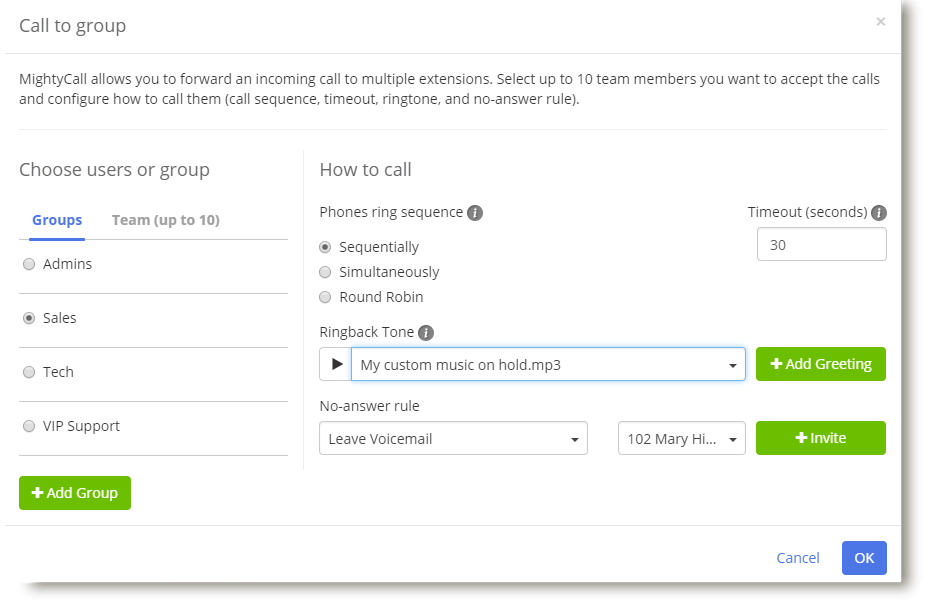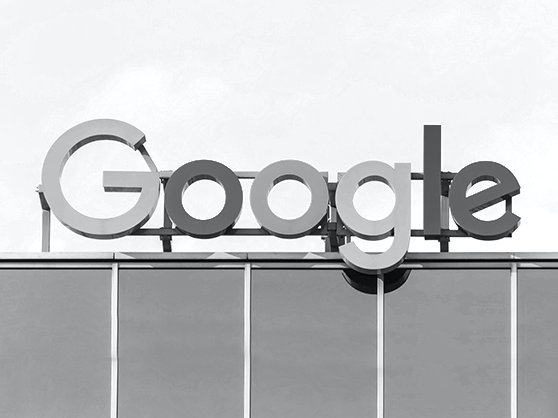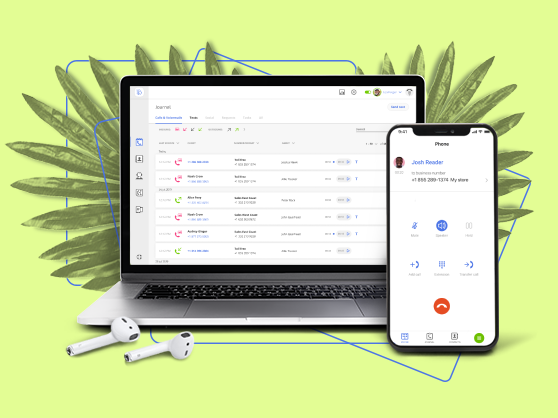Radio on hold is the practice of using live radio as on-hold music. For business owners, this is a free way to entertain callers on the line and avoid stock on-hold music. For callers, listening to the radio while waiting is an extra reason not to drop the call.
The practice of radio on hold is becoming increasingly popular among business owners. For phone system providers it’s not uncommon to hear customers talk about adding radio on hold to their business phone lines. Some customers even want phone systems to provide this feature as built-in.
With these apparent pros of radio on hold, the big question remains: do the pros outweigh any cons this practice may have? And what exactly are those cons?
Let’s take a detailed look at the reasons why radio on hold is causing so much hype, answer the question of whether radio on hold is legal, and take a look at all the music on hold options for business.
Navigate:
- Why use radio on hold?
- Is radio on hold legal?
- Instead of radio: alternatives for your music on hold
- Business phone system features that reduce on-hold waiting time
Why use radio on hold?
For business owners and phone operators, using live radio as on-hold has a specific aim: making the waiting time on hold fly by more quickly for callers. Listening to a song they enjoy, a caller will more likely hold the phone for an indefinite period of time (and perhaps even regret the song was interrupted by an operator) while an operator becomes available to take the call.
The very purpose of live radio as on-hold music is to entertain and keep callers interested enough to wait on the line. Many callers like it since it reminds them of the experience of traveling in a car rather than hearing faceless corporate music while waiting. Plus, there’s always the chance to stumble upon their favorite album.
Moreover, live radio on hold keeps callers’ attention focused at (apparently) no cost to the business. In contrast to custom on-hold messages which need to be professionally recorded and updated, operators can just manually play the radio for callers or even better — request that option from their business phone system. Or so they think.
Turns out, there’s more to pumpkin than pie. In our case, that’s licensing.

Is radio on hold legal?
Most business owners think there’s nothing wrong with streaming live radio as their on-hold music since the music is licensed to a radio station. They suppose that the radio station has already paid the licensing fees, etc. and there’s no harm in just playing that publicly-available music for callers. This accounts for the rising popularity of the live radio on-hold feature.
Unfortunately, licensing doesn’t work that way. In the legal world of music production, there’s a very clear distinction between music for private use and music for public use. When a radio station buys licensing for their music, they’re allowed to broadcast it to people’s homes.
And that’s where the radio station’s licensing ends. When you put radio as your music on hold, you’re actually creating a RE-broadcast, which means it’s now your job to have the appropriate license. Anything else is illegal under copyright law. The difference is the same as buying a CD and playing it at home vs. buying a CD and playing it in your store without licensing which is considered a “public performance”. And yes, if you didn’t know that’s illegal, read about Larry Leigh from Michigan and the $400k lawsuit for playing unlicensed music in his clothing store.
Instead of radio: legal alternatives for your music on hold
If you want to make waiting on hold special for your customers but don’t want the Russian roulette of fooling around with copyright laws, there are plenty of options to have your cake and eat it too.
Business phone systems like MightyCall offer ways to legally and safely keep your callers entertained on the line. These options will make sure that a caller’s momentary entertainment doesn’t end up in a grand lawsuit or just a whole lot of legal trouble for your business.
❗️ Important: whatever option you choose, remember all music chosen for your on-hold playlists must be royalty-free.
Press x for your favorite music
If you’re really into the creative spirit, you can give callers several on-hold music options in the voice menu while they wait.
Some businesses get creative with their voice menu:
- Press 1 for jazz
- Press 2 for country
- Press 3 for rock
You may choose royalty-free music to create one or several “playlists” as part of your call flow. The selected music genres should reflect your business, your audience, and your purpose.
Custom on-hold messages
Custom on-hold messages demand a tad more input on the business side. But they can be great for bringing across the personalized side of your business.
Ideas for on-hold messages:
- Important information — take the time to notify callers of any changes to your business operations. This is especially appropriate ahead of the holiday season, or if you’re temporarily on lockdown.
- Special offers callers would appreciate — don’t make these offers annoying and promotional. Go for short and sweet. For example, a coupon that will pleasantly surprise your callers!
- Humor on-hold messages — Entertainment isn’t just radio. Nothing preps people for nice conversation (and conversion) more than a smile! Of course, you should only try humorous on-hold messages that are discreet and appropriate for your type of business.
Seasonal on-hold messages and music
Seasonal messages should be played at least 2 weeks ahead of the holidays. This fits both holiday announcements and seasonal on-hold greetings that we suggest customizing ahead of big holidays.
It may seem like a small detail, but customizing your voicemail greetings and on-hold messages for the Holiday Season, Thanksgiving, and even Halloween makes your business instantly stand apart from the others. And it takes just a few minutes.
Business phone system features that reduce on-hold waiting time
For a business, it’s necessary not just to fix the surface problem of entertaining callers while on the line. It’s essential to solve the underlying problem — boosting organizational efficiency and minimizing waiting time for callers.
Both of these challenges can be effectively solved by two business phone system features: Call Queue and Call to Group.
Call Queue feature

The call queue feature is part of business phone systems like MightyCall. It’s most useful when you have a small team that’s not separated into specific departments (if that’s your case, see “Call to Group” below).
When you activate Call Queue, you choose the way the call will be handled and customize your call flows to perfection based on:
- Caller’s choice on the voice menu
- Business number dialed (if you have more than one)
- Hour of call (working hours or not)
- Type of caller (VIP number or not)
- Operator availability
Setting up call queues is really simple, and you can customize down to the minute details.
Call to Group feature

Call to group is another business phone system feature that reduces waiting time for callers. Here, instead of placing callers onto a queue, it forwards the call to a specific group like “Sales” or “Support”. This is really useful when you can separate your team into at least two departments to answer specific questions.
Call to Group routes calls to the appropriate department based on caller’s choice on voice menu and one or more of these: business number dialed (if you have more than one), working hours, VIP/regular/black list status.
If no operator from the specific group (like “Sales”) is available, the call will either go to voicemail, an external number, or will hang up after the specified number of minutes. Which of these options to choose is completely up to you.
Learn more about Call to Group capabilities.
Summary:
- Radio on hold is illegal and is an infringement of copyright law. It can cause serious legal problems for small businesses.
- Use only royalty-free music for your on-hold greetings, voicemail greetings, and any other music that your customers hear (and that includes inside your shop!)
- Don’t forget seasonal voicemail greetings and on-hold music. This will create a much more professional image than just entertaining your callers with radio (and perhaps one they don’t even enjoy)
- If you want to drastically boost calling experience, make your teamwork efficient, and minimize waiting time for callers, use a business phone system that offers features like call queue and call to group. Both your colleagues and your callers will love it.
Discover more
Have you picked your favorite radio on hold alternative yet?
If that’s a yes, check out our out-of-this-world fast, mobile, and budget-friendly phone system for small business. We’ll help your team talk anytime, anywhere, and about anything, at a stunning price.













